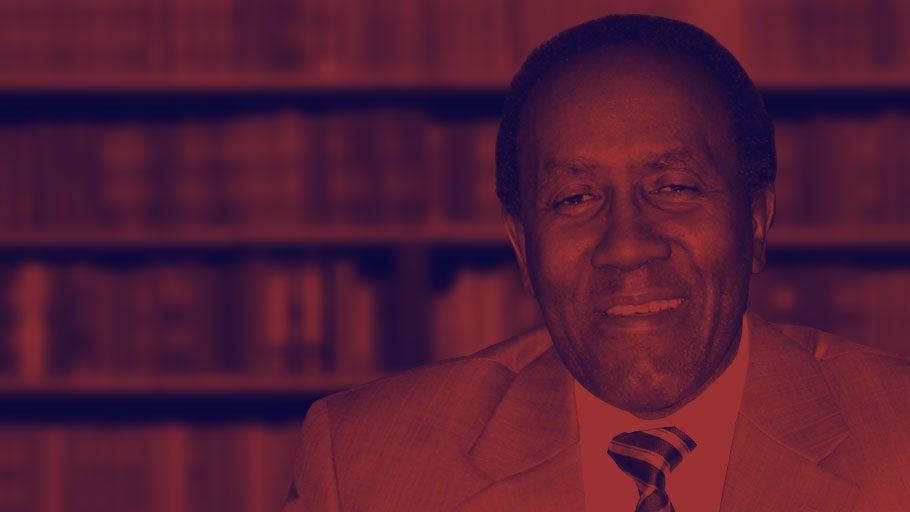By Basil Wilson
For
Carib News
11/20/14
At the beginning of the twentieth century, China was considered the sick man of Asia. At the beginning of the twenty-first century, China has emerged as a global power on the world stage. Last week, China served as the host of the Asian summit and proposed a free trade area encompassing all of Asia which the Chinese leadership projected would stimulate the global economy.
Xi Jinping used the occasion to hold talks with President Obama and the two leaders agreed to a historic reduction in green house gases. It is left to be seen if President Obama can convince the doubting Thomases in the United States Congress that there is an urgency to climate change.
Le Kwan Yew, the architect of Singapore’s economic miracle and Deng Xiaoping the initiator of the Chinese experiment, must be recognized as two incredible political leaders of the twentieth century whose bold economic innovation transformed their respective countries. China, prior to the rise of Deng Xiaoping to power in 1978, was a bureaucratic basket case with gross misallocation of resources and a population wallowing in stagnation.
Mao Zedong made a mess of the economy with the Great Leap Forward in 1956 and even worse with the Cultural Revolution in the 1960s. Mao’s Soviet concept of development simply did not kick start the Chinese economy after the Revolution of 1949. There were some gains under Mao such as the elimination of the drug problem that had gnawed at Chinese civilization since the Opium Wars of the 1840s and 1850s.
Deng Xiaoping’s experiment that was undertaken in 1979 was a daring experiment. The Chinese economy was open to the world economy. Capitalist economics co-existed with a totalitarian political system. The state’s involvement in the economy was not abandoned but the state had to compete and co-exist with private capital of both an external and internal nature.
From 1979 to 2013, the Chinese economy had the fastest growing GDP in the global economy with average GDP growth rates of 11.8 percent. The three plus decades of this experiment catapulted the Chinese economy to the second largest economy, outstripped in size only by the United States.
Everyone who visits China is awed by the dynamic nature of the developmental process. The coastal cities where much of the development has taken place is adorned with towering skyscrapers, bullet trains and high tech production of goods. China has managed to successfully lift millions out of poverty but the economic miracle has been accompanied by acute problems of inequality, widespread corruption, a rise in drug addiction and an escalating crime rate.
The exponential increase in economic growth has left China also with a serious problem of air pollution. In hosting the Asia summit in Beijing, China reduced the smog by temporary shutting down factories and limiting the amount of motor cars on the streets. But Xi Jinping is sophisticated enough to know that a temporary fix does not solve China’s long term challenges.
Apparently, Xi-Jinping sees himself as a transformative figure very much like Deng Xiaoping. At the 2013 Plenum of China’s Communist Party, Xi and the leadership identified sixty vexing problems that were necessary to right-size the Chinese civilization at this juncture.
Corruption is a threat to the legitimacy of the communist regime. The corruption has become endemic and has contaminated the ranks of the highest level of the Communist Party. Bo Xilai, a flamboyant member of the Politburo, was recently sentenced to life imprisonment as his wife and son were implicated in the murder of a British businessman. Even more ominous, Zhou Yongkang, a retired member of the Politburo who was in charge of domestic security, is under investigation for corruption. Zhou’s son has been charged and other members of the corrupt entourage have either been indicted or are being investigated.
Xi Jinping has vowed to clean up the widespread corruption and has kept his word that he is willing to go after even those officials who are defined as functioning outside of the law. This process is still in an embryonic stage and Xi’s stature as a leader will hinge on whether he can effectively deal with the plague of corruption that is corroding Chinese society.
It is ironic that China, a communist country, is not only rivaling America as an economic giant but also suffers from a Gini coefficient that is similar to the United States. China has over 113 billionaires and there is a privileged class that has amassed great wealth. Concomitant with the noveau wealthy are the floating population numbering in the millions who have migrated from the countryside seeking a better life in the burgeoning cities.
Much of the crime in the cities is being perpetrated by the marginalized floating population. The 2013 Plenum recognized these transients as a problem to be rectified. This is the class that gravitates to drug addiction and the distribution of drugs. The neighborhood serenity that was characteristic of the pre-Deng China has been lost to the rambunctious nature of accelerated capitalist urbanization.
China’s legal system is desperately trying to catch up with its galloping social disorder. Draconian measures have been tried which includes public executions, mass mobilization and public education but these state interventions do have a temporary impact but the juggernaut of the crime and disorder subsequently picks up new momentum.
China is emerged to be a significant actor on the world stage. Its economic policies have had a remarkable impact on Africa, the Caribbean, Latin America and Asia. But China has serious domestic challenges that must be resolved if China is to remain an essential actor on the world stage. Xi Jinping has a mammoth task on hand and his historical legacy will depend heavily on his ability to correct China’s economic and social distortions at home.















